Multiplanetary Innovation Enterprise Astro-Huskies Rover for NASA Lunabotics
Why This Project Is Important
NASA has several inter-university competitions that align with their goals for their ongoing Artemis Missions. An unavoidable obstacle of space travel is what NASA calls the "Space Gear Ratio", where to send one package into space, you need nearly 450 times that package's mass in expensive rocket fuel to send it into space. So in order to establish a long-term presence on other planets and moons, we need to be able to effectively acquire the resources around us, known as in-situ-resource utilization, or ISRU.
The NASA Lunabotics competition allows university student teams to show what autonomous robots they have developed to traverse around obstacles such as mounds, craters, and rocks before they can begin assisting in construction of a landing pad by creating berms and flattening out area. By demonstrating their robot, teams contribute ideas to NASA's future missions to operate on and start producing consumables on the lunar surface.
Project Description
The Astro-Huskies are a group of 30 students that are currently working on an autonomous construction rover for the NASA Lunabotics competition to be held in May 2024 at NASA Kennedy Space Center. The competition in the past consisted of two 15 minute runs where we will maneuver through an obstacle field filled with simulated lunar dust, rocks and craters, to the excavation zone where the robot will excavate and collect simulated buried ice chunks (buried rocks). The robot will then drive back to the starting zone to deposit the gravel for overall points. In order to successfully compete in the competition, the team will need to design, build, and test the electrical, mechanical, programming, control and operation aspects of the robot. For this upcoming 2023-24 school year, the competition is to be transitioned to a more construction-based challenge with similar difficulty criteria where instead of excavating material, teams will aid in the construction of landing pads by building berms to block material and radiation from being ejected when a rocket launches or when a nuclear power plant is constructed.
The competition requires a systems engineering approach which is an elaborate version of the engineering design process as well as public outreach events and a heavy focus on automation. This will be the team’s third year attending the in-person competition, and the team will be spending the 2023-24 school year learning from their previous design based on the experience gained from their last competition. We will then move onto the manufacturing, building, and testing stages. In May, we will be heading down to the Kennedy Space Center to compete against 49 other college teams. Funding is needed for parts of the robot and for offsetting the travel costs of sending the team to NASA Kennedy Space Center in May 2024.
We are very excited to have been selected to be a part of this competition and to represent Michigan Technological University and its crazy smart students well!
Visit the Lunabotics and Multiplanetary Innovation Enterprise Website!
Meet the Researchers

Christi LeCaptain
Christi is a 4th-year Mechanical Engineering student and Senior Resident Assistant at Michigan Technological University. Christi has been a member of the Multiplanitary INnovations Enterprise and Lunabotics team on campus for 2 semesters. She will be the project manager for the Astro-Huskies Lunabotics team for the 2023-2024 season.

Seth Thurman
Seth is a 4th Year Robotics Engineering student at Michigan Technological University. He competed in robotics at the National Robotics Challenge of 2019 during his senior year of Highschool where he discovered his passion for robotics. During the 2022-2023 school year, he also participated with the Astro-Huskies Lunabotics team on the Multiplanetary Innovation Enterprise at MTU as an Excavation team member. For the coming 2023-2024 school year he has taken the leadership position of Lead Systems Engineer.
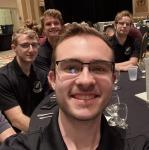
Karson Linders
Karson is a 4th-year Mechanical & Robotics Engineering student at Michigan Technological University, also pursuing a Minor in Data Acquisition & Industrial Control. An Eagle Scout Alumni of Boy Scout Troop 265, he brings in-depth project management experience to the Assistant Project Manager position for the Astro-Huskies on the Multiplanetary Innovation Enterprise, on which he will be starting his fifth year in the 2023-24 school year.

Paul van Susante
Dr. van Susante grew up in The Netherlands, received a Master of Science from Delft University of Technology in 2001 in Civil Engineering with an emphasis on Building Engineering. He then went to the Colorado School of Mines (CSM) to participate in NASA research and received a Master of Science in Engineering Systems from CSM in 2004 followed by a Ph.D in Engineering Systems from CSM in 2011. Dr. van Susante taught Freshman, Sophomore and Senior Design as well as Mechanics of Materials for five years at CSM before coming to Michigan Technological University in 2012. He was a NASA Faculty Fellow in 2010 and consulted for a variety of companies on SBIR or STTR projects such as University of Arizona, Sysrand Corporation, Energid, HoneyBee Robotics and others. He has been involved in research projects for many customers including Lockheed Martin, DARPA, NASA KSC, JPL, Bechtel, Caterpillar, NCHRP, NSF and others.
days left
funded
last
What Your Donation Can Help Us Do:
- Offset travel costs for students to participate in the competition. Purchase robust rover materials, actuators, state-of-the-art sensors and control system components.
$50 5 Funders
Company/Full Name on website
$100 0 Funders
Company Logo on Website – Picture of team w/Robot
$250 0 Funders
Email Update on Project Progress
$500 4 Funders
Virtual Invitation to Design Reviews
$1,000 0 Funders
Logo / Name on T-Shirt worn to competition
$2,500 0 Funders
Logo/Name on Rover
$5,000 0 Funders
Commemorative Plaque
$10,000 0 Funders
Invitation to MTU for Live Demo & Tour
Recent Donors
Some donors may be hidden.

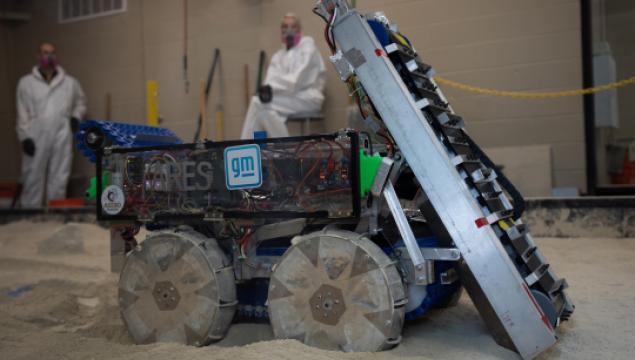
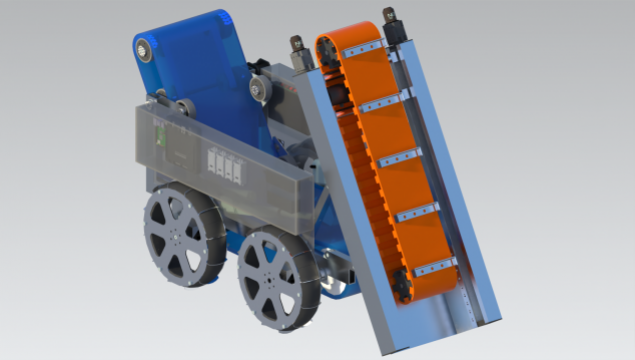
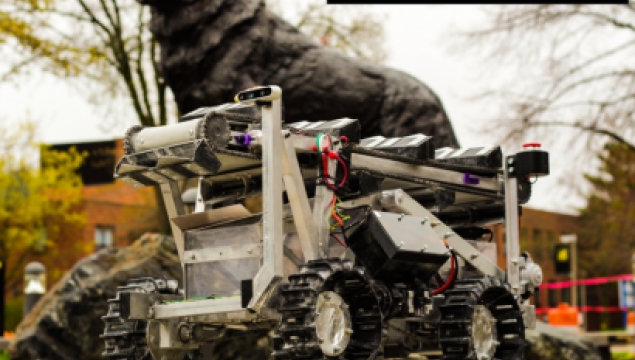
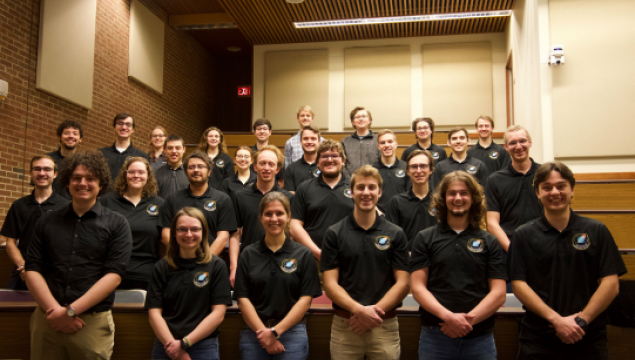
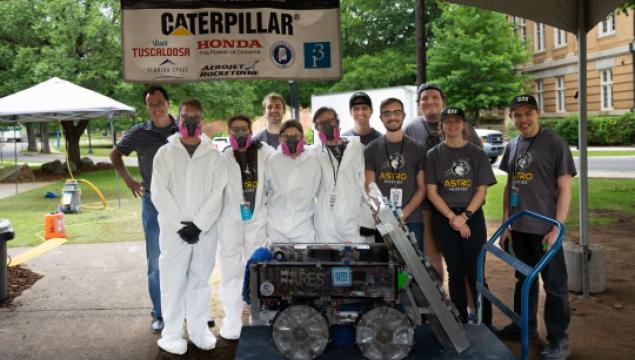



 Gifts to projects listed on SUPERIORIDEAS.ORG are received and processed by Michigan Tech Fund. Michigan Tech Fund is a tax-exempt organization under Section 501(c)(3) of the Internal Revenue Code acting on behalf of Michigan Technological University. It is the policy of Michigan Tech Fund that a portion of the gifts and/or income therefrom may be used to defray the costs of raising and administering the funds.
Gifts to projects listed on SUPERIORIDEAS.ORG are received and processed by Michigan Tech Fund. Michigan Tech Fund is a tax-exempt organization under Section 501(c)(3) of the Internal Revenue Code acting on behalf of Michigan Technological University. It is the policy of Michigan Tech Fund that a portion of the gifts and/or income therefrom may be used to defray the costs of raising and administering the funds.